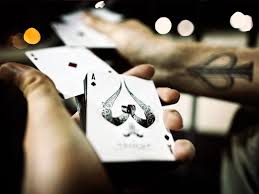记忆方法
将“artifice”分解为“art”和“ifice”。记住“art”代表艺术,而“ifice”可以想象成“science”(科学)的倒置,暗示“artifice”是一种精巧的、有时可能被误认为是科学或技巧的欺骗行为,即“艺术化的技巧”或“诡计”。
以上内容由AI生成, 仅供参考和借鉴
中文词源
artifice 诡计
art, 技艺,工艺。词根fact, 制造。与artifact构成对词。
英语词源
- artifice (n.)
- 1530s, "workmanship, the making of anything by craft or skill," from Middle French artifice "skill, cunning" (14c.), from Latin artificium "a profession, trade, employment, craft; making by art," from artifex (genitive artificis) "craftsman, artist," from stem of ars "art" (see art (n.)) + facere "to make, do" (see factitious). Meaning "device, trick" (the usual modern sense) is from 1650s.
权威例句
- 1. Weegee's photographs are full of artfulness, and artifice.
- 维基的摄影作品运用了丰富的艺术手段和技巧。
- 2. His remorse is just an artifice to gain sympathy.
- 他的悔恨只是一种骗局,是为了博取同情.
- 3. He displayed a great deal of artifice in decorating his new house.
- 他在布置新房子中表现出富有的技巧.
- 4. Efficiency and effectiveness and all those other pieces of intellectual artifice.
- 效率,效益还有其他种种头脑里想出来的花样.
- 5. Elsewhere imitation and artifice play a part.
- 在其他领域里,模仿和技巧起了一定作用.
